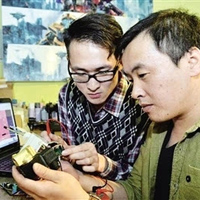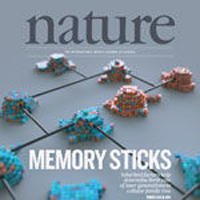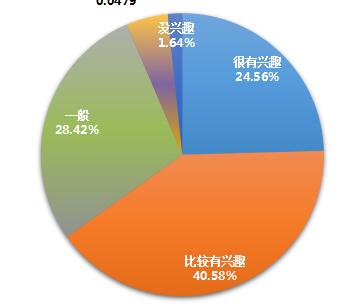-

【China Daily】Majority of college students want to start business
More than 60 percent of Chinese college students said they were interested in starting their own business, according to a survey released in Beijing on Tuesday.The study on entrepreneurship among Chinese college students was compiled by the Center for China and Globalization, which collected responses from 2,797 students at 100 colleges across the country.According to the survey, 24.56 percent of the respondents showed great enthusiasm for entrepreneurship and 40.58 percent said they were quite interested in going into business. A detailed look into the study showed that engineering students were the most enthusiastic, followed by students of economics, law, art, and medicine.A total of 70.4 percent of students saw entrepreneurship as a better way to achieve self-improvement and self-worth.Many hoped to start a business while they were still on campus - 47.48 percent - while, a third wanted to launch company after graduation.Due to the challenges of growing population, the high cost of living, business expenses and traffic congestion in first-tier cities, almost half would like to set up business in second-tier cities such as Chengdu, Wuhan and Nanjing, which also have fast-growing economies and improving infrastructure.Although students were positive about entrepreneurship, they were also aware of difficulties and problems.As many as 61.37 percent felt that lack of capital was the biggest challenge. Acquiring bank loan without enough credit or assets was cited as another challenge. Only 34 percent of students saw themselves as having the basic requirements for starting a business. Also, they said there was no specific government policy to support college entrepreneurs.The survey also revealed other perceived obstacles, including low awareness of entrepreneurship education among students, insufficient investment in such education by schools, lack of related courses, and so on.The survey collected suggestions on how to promote college entrepreneurship. More than 97 percent of students said they would benefit from education on starting a business. Coaching by experts and entrepreneurs was the way they would prefer to learn. More than half of the students said the introduction of relevant supportive policy was their primary demand from the government.From China Daily,2017-9-27
2017年9月29日 -
何亚非:全球化大趋势不会改变,因为没有人想退出去
世界正在发生翻天覆地的变化,有很多的不确定性,包括政府、经济、文化、文明等。这些不确定性,给我们经济的发展、外部环境,造成了很大的困难。 同时,时代也在发生变化,从旧时代向新时代发生转变,全球治理也在发生变化。全球治理正从西方一统天下到东西方共同治理发展,而方向是多元化的,世界是多极化的,经济是全球化的。 9月23日,原外交部副部长、原国务院侨务办公室副主任何亚非在第三届复旦首席经济学家论坛中以《全球变局下中国经济的新动力》为题发表了演讲何亚非,全球化智库(CCG)联席主席,中国外交部原副部长。 我想从国际大的趋势,从外交这个层面,给大家提供一个参考性。中国经济的新动力,我们要找到新动力,我觉得恐怕要对我们现在所生活的这个世界,有一个全面的新的认识,世界面临的变局是什么,我们面临的环境是什么,特别是大国关系的一些变化。 习近平总书记有一句话,我们从历史的纬度看,人类社会正处在一个大发展,大变革,大调整的时代。我认为现在世界正在发生翻天覆地的变化,有很多很强烈的不确定性,这些不确定性,包括政府,包括经济,包括文化,包括文明。这些不确定性,给我们经济的发展,外部环境,造成了很大的困难。 我们现在预测经济的发展,不仅仅是一个经济问题,还涉及方方面面的,各国所面临的众多问题组合起来的一个复杂的环境。那么这些巨大的变化,如果概括起来就是说现在国际秩序在发生转换。 我们讲时代发生变化,从旧时代向新时代发生变化,由此,全球治理也在发生变化。我写过一篇文章讲现在的时代,美国的世纪已经结束了,什么意思?就是说美国一统天下的局面已经不存在了,虽然他还有很强的主导能力,但是他想一统天下是不可能的。后面是一个什么世纪,现在还不好说,因为有很多不确定性。中国上升的势头很强,会不会是中国所面临的、领导的一个世纪,现在还不好说,还要看。 但是全球治理,或者国际秩序,确实从西方一统天下,向东西方共同治理天下的方向发展。方向是多元化的,世界是多极化的,经济是全球化的。我用了一个词,世界经济政治都进入了新常态,所谓新常态的“新”,就是变化很快,变化很大。常态就是讲这个转换期,会延续相当长的时间。我们面临的不确定性,不会很快消失。 现在的确定性,不确定性,有几个方面,一是来自力量格局的变化。国际货币基金组织,2017年,IMF的数据显示,用购买力平价来计算西方发达国家GDP的总和,占世界的总量,它的比例从1980年的64%,已经下降到现在的42%,有一个质的转变。前阶段,厦门金砖国家峰会,也说了,中国和其他金砖国家,对世界经济增长的贡献率,每年超过50%,也就是说新的经济增长,主要来自中国这些国家。这个力量的格局,带来了政治力量平衡的变化。 美国或者以美国为首的西方国家对这种情况,是不适应的。或者是不愿意接受,有一种战略上的焦虑。有一个说法,新兴大国的崛起,是不和平崛起,认为新兴大国跟守成大国,一定会发生冲突,这是美国新保守主义的观点。因为复旦大学翻译过海默的著作《大国政府的悲剧》,从他的书中可以看到很多观点。 大国之间关系的紧张,很大程度上,来源于世界力量格局的冲撞、变化。世界经济的变化,一个很重要的问题,并不是在复苏还是没有复苏,而是在于世界经济的下一步,发展方向在哪里。总书记讲的,新旧动能转换,新动能在什么地方,中国经济的新动力,世界经济的新动力在哪里?现在技术革命日新月异,信息化技术不断发展,但是我们还是没有找到一个颠覆性的可以推动世界经济进入新一轮发展这么一类技术。像互联网、汽车、蒸汽机,第四次工业革命究竟会产生什么样的结果?人工智能,生物技术,新能源都不好说,都要相互竞争。所以就产生了一个世界经济失去了一个方向,另外在发展理念上,发展理念过去的经济新自由主义,完全依靠市场,这两个市场不太平衡。这个问题也比较突出。 当然,中国从自身的经验出发,提供一些发展的新理念,这个新理念能不能为世界所接受,是个问题。 第二不确定性,经济上有很大的不确定性,美联储的举动,他们对世界经济的流向,会产生很大的影响。 第三个问题,许善达老师所讲的不赞成逆全球化的说法,但是现在也没有更好的说法。全球化大趋势不会改变,因为没有人想退出去,但是确实有一种反全球化的思潮,表现为民粹主义也好,在泛滥。这里的根本性问题,全球化它既给全球带来了财富增加,但同时,造成了资本收益要远远高于经济增长率。法国经济学家讲过,资本收益大于经济增长率的结果,财富向少数人集中,造成了贫富差距。 这就给社会动荡,社会阶层的分化提供了土壤,特朗普获胜,就是靠的这个。民粹主义上升。用我们现在的语言来说,市场效率与社会公平这对矛盾,光依靠市场是解决不了的,光依靠全球化本身也解决不了。还需要政府和社会主体包括大的企业,都要发挥作用,但是这个问题很难解决,最近西方很多文章讲,如何解决贫富差距问题,但是都没有很好的办法。 可能中国的实验,过去几十年,我们自身所做的努力,减贫、扶贫,这方面的努力,还有其他促进社会公平的措施,在全世界是很好的借鉴。因为反全球化这个民粹主义,现在已经影响了世界政治。因为它影响了一些主要发达国家的政治生态,它的政治,会极端化。政治权极端化,必然会产生贸易保护主义,反对移民,这些反全球化的措施,对经济是不利的。 我赞成最大的变数是美国这一说法,今后这一段时间,因为美国它是全球体系,国际体系,全球治理的设计者、主导者,现在依然是主导者。但是美国现在在变,为什么变?美国认为,全球化现在偏离了“美国化”的方向。因为美国人很早就说过,全球化是美国化,美国必须获取最大的利益。如果美国没有获取最大的利益,它就要修改规则。现在显然特朗普就是一个特殊的例子。你说这个人不靠谱,但是这方面他挺靠谱的,他说我要美国第一,就是说美国一定获取最大的利益。不管你原来有什么贸易协定也好,都要重新谈判。贸易原来是获利的,他就要从你这里获得更大的利益,哪怕短期的利益,哪怕中长期对美国不利,对世界不利,他也要干。同时,修改国际规则。气候变化他不干了,WTO他也不用了,这些对全球化会产生长远影响的措施,美国的这些思想,代表民粹主义的思想,如果在一定时期内占主导地位,那么对今后世界经济的影响是很大的,因为美国的政策,会受它的影响。 再一个我觉得中美关系,作为一个新兴大国和守成大国之间的这种战略性的矛盾,怎么解决?恐怕是我们今后一个时期需要十分关注的问题,因为他会影响,不仅是中美两国经济关系,特朗普上台以后,中美经济方面的对话,有成功,也有不成功的方面。我觉得这可能是中美两国还没有在战略层面上,或者说从文明的融合层面上,解决好两国对外战略的相互对接问题。 中美两国,现在美国的很多人认为,这两国不可能和平。但是现在美国有三个人,芝加哥大学的海默教授,还有一个亨廷顿,《文明冲突论》的作者,明确指出以美国主导的西方文明跟中国所代表的东方文明,是不可能大家都懂。因为双方都认为,这个文明是最优秀的。 美国有一句话,他建国的时候说,美国是山上的灯塔,是照亮世界、照亮别人的一个灯塔,他自认为是灯塔。所以他把世界的文明分为三六九等,由西方的文明延伸出来的政治制度,也属于最优秀的,所以它就要推广它的文明。只要跟他们的民主自由体系不相吻合,他就要反对,他就认为你是不循规蹈矩,不融入世界体系,它就要打击。它很明确,不管是颜色革命也好,或者是军事推翻,军事力量来介入,他什么都会干,因为他认为这是天经地义的,我的制度最好,我的文明最好,你为什么不接受?所以中美之间有一个哲学层面的问题需要解决。 文明一定会冲突吗?还是文明之间,可以融合,可以交流,可以相互借鉴?总书记提出来,文明之间要进行对话,“一带一路”里面特别强调的就是文明的对话,文明的相互借鉴,互鉴,这就提出了一个新的思想,人类命运共同体的建设。人类命运共同体的建设,我觉得它的基础就是文明的融合。如果文明之间相互都不包容,那么冲突是必然的,所有的政策随时都会发生变化,不管它是政治方面还是经济方面的。如果把对方作为一个需要压制的对手,它的政策,都会对两国关系,世界经济不利。 所以中美关系,将来我们需要特别关注,特朗普说今年要来访问,那么今年来访问,我觉得,这方面的沟通是非常重要的。两国从战略层面,从文明层面,如何解决这对矛盾,两国关系,在这么高的层次上怎么处理?很多人会讲,会讨论朝鲜半岛问题,因为朝鲜半岛问题比较紧急,双方要讨论好各自处理这个问题的方式。因为美国只重视朝鲜问题核的方面。其实朝鲜半岛问题,我一直认为,他是有三个方面的问题。一个是核问题,比如说朝鲜半岛,不能有核武器,这不仅仅指朝鲜,还有韩国,韩国不能有美国的战术和部署。 第二,地区安全问题,你要确保各个国家和地区,都要安全,朝鲜也有安全的需求,韩国也有,中国、日本,这些国家都有,地区安全怎么保证。不能因为朝鲜这个核问题,而产生地区安全的隐患,或者说爆发另一场战争,更是不能容许的。 第三,我觉得更大的问题因为围绕朝鲜半岛,大国之间的战略平衡不能打破。为什么中国、俄罗斯这么坚决反对在韩国部署“萨德”反导系统,因为他会削弱中国的核威慑能力,我们需要好的威慑能力,确保大国之间的平衡。这三个问题不能综合考虑,朝核问题不能得到解决。还有的人会想,特朗普访问,一定会谈经济问题,双方经济合作,怎么做进一步的调整,我们也需要适应美国新政府的这种状态,到底怎么办?经济上,可能不能沿着原有的轨道走,但是经济问题,我觉得总体上还是双方互有妥协。需要做交易的问题,政治上很难做交易,你要中国改变意识形态,不可能。你要中国从制度上,变成另外一个美国,也不可能。 所以中美之间,如何处理各自的关系,我们需要认真关注。对中国经济新动力在哪里的问题?除了我们在国内寻求解决办法,不论去杠杆也好,做其他事情也好,把自己事情做好,很重要,我觉得总书记也是非常重视的,就是要通过“一带一路”,通过金砖+新型的国际合作,去寻求我们新的经济增长动力。 因为这是一个全球化的时代,虽然我们外向型经济需要调整,但是中国经济不可能独立发展,它需要在全球化的条件下,与其他国家一起发展,中国提出来的方案,中国思想,中国方案,是大家共同发展。我们需要共同发展,不能让某一些国家,在全球化过程中掉队,不能允许一个国家掉队,全球化需要向普惠的方向发展,我们需要共同发展,那么“一带一路”是我们一个非常重要的,具有战略意义的倡议,它确实不是一个援助计划,新的马歇尔计划,也不是一个经济合作的一个方面,他是一个非常全面的,能够提升各国发展能力,各国相互文明,相互重合能力一个综合性的方案。 不仅能够解决经济问题,还能够为解决地缘政治的一些矛盾,创造条件。所以我觉得我们可能把我们的目光,除了从国内寻求新动力以外,还要把目光转为改革开放,更大范围的开放,融入全球化,从那里寻找我们经济发展的新动力。文章选自澎湃新闻网,2017年9月27日
2017年9月29日 -

NATURE:Young science in an old city
Beijing, ’northern capital’ in Mandarin, was so named by the third Ming emperor Zhu Di more than 600 years ago when he made it the centre of his empire.Today, the city is home to many of China’s most prestigious universities and state research institutes, including Peking University (PKU) and Tsinghua University, as well as a litany of institutes nested within the sprawling and Beijing-headquartered Chinese Academy of Sciences (CAS), the world’s top-ranked scientific institution for high-quality output, according to the Nature Index.This city is also a formidable technology hub. In the northwestern Haidian district, the largest and most successful of China’s high-tech development parks — Zhongguancun — houses the head offices of technology powerhouses such as the search giant Baidu, the tech behemoth Lenovo and Xiaomi, the world’s fifth-largest smartphone maker.“Researchers, entrepreneurs and local officials have jointly fostered collaborative relationships between Beijing’s academic research organizations and commercial enterprises,” says Abigail Coplin at Yale University’s Council on East Asian Studies in New Haven, Connecticut, who researches Chinese science from a sociological perspective. Many of the early successful technology companies in the area were majority-owned by nearby universities and research institutions. These collaborations helped to develop Beijing’s scientific standing alongside its existing role as the Chinese capital. “Beijing is not just the seat of the central government. It is also the cultural capital and human capital hub of the country,” says Coplin.Dutch astrophysicist Richard de Grijs agrees. “Beijing is the gateway to China,” he says. He works at the Kavli Institute for Astronomy and Astrophysics, which is based at PKU in Haidian. “Many scientists enter China through Beijing, so we tend to get a lot of visitors from abroad. That helps with our international visibility.”Box 1: Bright ideas: Credit where it’s dueDan Harris is a lawyer and founding member of Harris Bricken, a China-focused international law firm headquartered in Seattle, Washington. Harris, who runs the influential China Law Blog, says a big question for foreign researchers in China is over intellectual property, or: “Who owns what of the results of the research?”“Will the foreign researcher just work for salary and own nothing? Some percentage? Based on what?” he asks. “This is what they need to think about, and then if they want any part of the results, they need a China-specific contact to make sure they get it, or they will return to their home country empty-handed.”David Bennett is an intellectual-property counsellor for the Australian government, based at the nation’s Beijing embassy. He is the first such consultant to any country on behalf of Australia. According to Bennett, Chinese patent laws are rare in providing intellectual-property protection for employees. Although Chinese institutes generally own their employees’ inventions, unlike most countries they have a statutory obligation to compensate the inventor. “Chinese law provides that an employee is entitled to reasonable compensation for such an invention, usually a percentage of profit derived from a patent,” he says.“In this regard, China is one of the more inventor-friendly countries.”Striving for scientistsIn efforts to improve its research culture and scientific infrastructure — and to promote its international reputation — China has ramped up its bid to attract foreign scientists such as de Grijs over the past decade, with generous grants and other support. In January, Chinese Premier Li Keqiang hinted at additional measures the government is considering to foster foreign talent, including simplifying the immigration and visa process and strengthening intellectual-property protection.Chinese policymakers are building a unique science and technology ecosystem, according to Coplin. It’s “science and technology with Chinese characteristics”, she says — a confluence of initiatives aimed at increasing China’s technological independence, using innovation as an economic driver, and aligning this development with the government’s priorities.China hopes to grow by “bringing individuals with innovative ideas to China, and giving them the resources necessary to start labs and companies”, Coplin says. The nation’s headline policy in this regard is the Thousand Talents Plan. Initiated in 2008, it comprises cash incentives, government support and favourable visa treatment in an effort to recruit ’expert talents’ to China. The scheme will run up to 2021.Applicants to the scheme are divided into two streams — one for foreigners, and one for those with Chinese heritage. Successful applicants to either stream are entitled to a 1 million yuan (US$154,000) subsidy from the Chinese government and have access to a 3-million- to 5-million-yuan research grant.The way these policies have been implemented is “distinctively pragmatic”, says Coplin. The Thousand Talents Plan has short-term and long-term options available for returnees of Chinese ethnicity. These let them try out academic life in their home country, perhaps for a few months, before committing to a full return. “Although the practice is somewhat contentious, these programmes also enable some part-time returnees to simultaneously operate laboratories in two different countries, and thus essentially have research being conducted in their name 24 hours a day,” she says.But this treatment is not expected to last forever. As China’s science and technology ecosystem advances, and so becomes more attractive to overseas students, Coplin thinks future incentive programmes will require greater levels of commitment.A hard sellDespite these efforts, Beijing still does not always attract the foreign talent it hopes for. De Grijs, a popular figure in Beijing’s research community known for his science advocacy and outreach work, has made an interesting observation over years of trying to fill positions at his institute. “If you offer postdoc positions or fellowship positions to Chinese citizens, it’s almost 100% guaranteed that they’ll come here. If you offer them to people from Asia — and that’s India, Korea and other Asian countries — I think we had a success rate of 60–70%. And if you offer them to US or European scientists you might get 10% or 20%.”De Grijs often contributes English-language columns on science and policy to the Chinese government news portal China.org.cn, where he has both defended and criticized elements of China’s science sector. He says his writing has never been censored. In one January column, de Grijs analysed what he sees as the three challenges facing China’s foreign recruitment push.The first is a perception that China is an unattractive or intimidating place to live — “it still has this perception of not being very open”.The second is a concern that researchers may lose visibility in their field — China’s location, many hours’ travel from the world’s scientific centres in the United States and Europe, means that networking and establishing oneself in an international field can become a costly endeavour. “You have to work to not be forgotten by your peers,” says de Grijs. Publishing often and organizing local conferences is one option, he suggests.The third challenge is the relatively low international ranking of many Chinese universities, which de Grijs thinks dissuades senior scientists from taking permanent posts in the country. “Attracting senior foreign talent to long-term appointments will only succeed if they feel at home and respected in their new positions,” he wrote.“There is some Absolutely Excellent Science at the Top end.”Another worry for many researchers is the integrity of scientific research in China. Numerous scandals have damaged its reputation on the international stage. In April, the journalTumor Biology retracted 107 papers written by Chinese scientists after its publisher, Springer Nature, determined that fabricated reviews had been submitted to support those publications. (Springer Nature no longer publishes the journal; it does publish Nature, but Nature’s news and comment team is editorially independent of the publisher.) But de Grijs is exasperated by the Western perception that Chinese science is untrustworthy. “There’s a huge range — there is some absolutely excellent science at the top end, and there is a whole range of different gradations of quality.” And he adds that academic fraud is not a problem limited to China. “It’s international. China gets picked up because it’s a high-profile country. And yeah, there are certain practices that are unethical and that have to be worked on.”The Chinese government has launched various initiatives to combat academic fraud — and a new interpretation of China’s criminal code could, in extreme cases, see researchers who fake clinical data executed. De Grijs doesn’t agree with the use of the death penalty, “but I think it’s good that fraudulent practices are being addressed”.Success in the citySourceS (Data from 2013): OECD/Cn.gov/Wall Street Journal Encyclopaedia BritannicaFor those who have made the move, the rewards can be plentiful, but Beijing presents its own unique challenges to foreign researchers. De Grijs relocated there in February 2010 with his wife, a Chinese biologist and research fellow who gained a post at Tsinghua University at around the same time. He calls the Peking campus, with its serene lakes, an “oasis in a big, bustling city”, and has just applied for his eighth year-long residence permit — a relatively painless exercise given his academic affiliation. “I’m supported by Peking University so they take care of all the paperwork.”Previously an associate professor of astrophysics at the University of Sheffield, UK, de Grijs describes his Mandarin as “not very good” but says he gets by just fine at the institute, one of a growing number of Chinese research bodies that function primarily in English. He also has university translators on hand to help.Beijing’s smog and light pollution would render a research telescope on campus useless. The small telescope that sits in a dome atop the School of Physics is instead used to train budding stargazers. “It’s good for showing students how you can use a telescope and what sort of physics you can do with simple observations,” de Grijs says.For research-level observations de Grijs uses larger telescopes in more remote parts of China, such as the Qinghai Observation Station in Delinha, or sends his students there. His current research primarily involves the Hubble Space Telescope, which means booking observing time, then sending coordinates and instructions to scientists in Baltimore on the US east coast to be beamed spaceward.Growing globalizationIn the city’s north, next to the main site of the Beijing 2008 Olympic Games, sits the CAS Olympic Village Science and Technology Park, which is peppered with research institutes dedicated to genetics, genomics, physics, microbiology, geography and more.Much of Beijing’s Olympic infrastructure remains, including the iconic blue bubble-surfaced ’water cube’ that held swimming events. Nearby is the Institute of Zoology, CAS, where chemical ecologist Jacob Wickham is crouching next to an ailanthus tree. The tree is wrapped in a sheet of sticky white paper dotted with slow-moving insects. Wickham, who hails from Buffalo, New York, and who moved to China in 2006, has set insect traps with different chemical lures along a row of 64 trees inside the institute’s fence.The trees are a Chinese native introduced in the eighteenth century to the United States, where they’re known as the ’tree of heaven’. They are rendered less charitably in Mandarin as chouchun— chou means stink. “In the US they only grow alongside railroad tracks and around junkyards,” Wickham says. “They’re really junky, but they’re nice shade trees.”They’re also a gold mine for anyone targeting the brilliantly red-and-black insect Wickham now holds in the palm of his hand. The spotted lanternfly (Lycorma delicatula), a Chinese export that feasts on stone fruits and timber trees, is currently wreaking havoc in Pennsylvania, where it threatens a $12-billion hardwood industry.Conventional approaches to controlling the lanternfly have proved ineffective, partly because its bright colours advertise its toxicity. “I’ve seen ants walk by the corpses of these things. They’re like indestructible beasts. Not much will eat them,” Wickham says.Instead, he hopes to use a chemical–ecological approach to identify the pheromones that influence insect behaviour. “I’m researching attractants — and also looking at what sticky bands are most effective at catching them.” Eventually, he hopes, these chemical smells will help to confuse, control and — where necessary — eradicate the lanternfly.Wickham collaborates with the Canadian Food Inspection Agency and the US Animal and Plant Health Inspection Service. But he moved to China to be closer to the invasive insect species that fascinate him — originally the wood-boring Asian long-horn beetle (Anoplophora glabripennis), which formed the basis of his PhD.“It was one of the first really big nasty invasives that spread from China to other parts of the world,” Wickham says. The wood-borer, which lays larvae that tunnel into bark and wood, is thought to have stowed away in packing materials dispatched from China. “It was one of the unintended consequences of globalization, the movement of invasive species around the world,” he says. “Think of all the shipping crates.”Wickham’s move has not been without problems. Back in his lab, he recounts being caught in the “vortex of China’s talent recruitment and bureaucracy” as he positions an emerald ash borer beetle (Agrilus planipennis) for an experiment.He was offered a permanent position at the Institute of Zoology, which requires either a Chinese green card or a ’foreign expert certificate’ to get on the payroll. He has no green card, and his current certificate is tied to a previous employer. This complication has left him in employment limbo. Fortunately, he edits a zoological journal at the institute, which entitles him to remain until the situation is resolved. Wickham’s experience is illustrative of the red tape that most foreign researchers must learn to accept as part of life in China.Fossils and fundingSim Chi Yin/VII/ReduxJingmai O’Connor has found success in Beijing, helped in part by ready access to some of the finest fossil collections in the world.Palaeontologist Jingmai O’Connor hasn’t found China’s administrative culture as stifling as Wickham has. In fact, she feels less weighed down by red tape than she did in the United States, with “the freedom to do my research unfettered by paperwork and bureaucracy”. The American-born researcher has also, as de Grijs advises, worked hard to maintain her international visibility, publishing nearly100 papers since taking a post eight years ago with the Institute of Vertebrate Paleontology and Paleoanthropology (IVPP), a CAS institute in west Beijing.Early last year, O’Connor contributed to CAS’s third-most-impactful journal article by Altmetric score in any field — which details the plumage of bird wings fossilized in a mid-Cretaceous Burmese amber deposit and their similarities with those of modern birds living 99 million years later (L. Xing et al. Nature Commun. 7, 12089; 2016).“I am thrilled to be somewhere where science is appreciated and funded,” O’Connor says. She compares the experience with her home country where she had to “scrape by with minimal funding, only able to see the one or two most important collections and attend a single conference a year”.“My boss has been awarded two of the largest grants ever given by the Chinese government and we have money to do everything and anything we want. It means when we want to check collections or bring in collaborators — often to teach mini-courses and help our students stay on top of the latest techniques — or buy the latest equipment, we don’t even bat an eye.”A recent grant O’Connor’s team received for multidisciplinary research was designed to be large, she says, “so that the receiver doesn’t have to waste time applying for grants for five years, so they can focus purely on the research”.In fact, the IVPP has been so successful that it is shifting towards more independent projects. “Research in China has been rapidly moving forward, taking advantage of funding to stay on top of the latest techniques and technologies and moving towards less dependence on foreign collaborators,” O’Connor says.World-leading research is not the only draw for O’Connor — the lifestyle is important as well. She has lived among Beijing’s hutongs — the narrow streets that snake between low-rise buildings and characterize traditional residential areas — for most of her time here, and says the city gives her a degree of freedom distinct from her experience in the United States. O’Connor also makes favourable comparisons between China and the United States in relation to gender bias. “I don’t feel particularly discriminated against and in fact, I feel less so than I would in the USA. I have tattoos and piercings and feel like these things in America would hold me back, whereas in China, as long as I’m productive, they couldn’t care less how I look — and if they find my behaviour odd, it gets chalked up to being foreign.”“This institute has really become home,” O’Connor says of the IVPP, which she first visited in 2003 as an undergraduate researching mammals. “I’ve spent my entire career here, and see no need to move on in the near future. At first this bothered me, but now I recognize that I have a great thing going so why should I feel the need to add other institutions under my belt? Beijing was the only choice. I really love it here, both as a place to live and to work.”Box 2: Life in the city: A capital of contradictionsChina’s capital is a bustling city built high and wide, laid out among five concentric ring roads. Beijing’s motorists frequently disobey traffic ordinances — it is often inertia that confers right of way. Yet traffic generally flows, albeit sometimes at a trickle.The city itself — part of a wider municipality also called ’Beijing’ — is more than 4,500 km2 in area — around five and a half times the size of New York City. Beijing municipality is more than three times that.With a size and population comparable to a small nation, it’s understandable that Beijing often seems to be a tale of two cities. At the first sign of a rainstorm, a frequent occurrence in summer, emergency SMS messages warn citizens of inevitable urban flooding that regularly claims lives, even as a sophisticated centuries-old plumbing system quickly drains the imperial palace. Mountains that historically shielded Beijing from attack to the north and the west now conspire with high-pressure weather systems to trap a layer of air over the city, resulting in Beijing’s infamous smog.Smartphone apps send push notifications when pollution levels peak, prompting the use of industrial-grade facemasks while outside. Yet parks and open areas around the city spring to life at dawn and dusk as groups of elderly people take part in semi-structured exercise classes timed to electro-folk remixes. Cycling is a popular form of transport in the largely flat cityscape, and at least one company is working on share-bicycles that filter the air as they’re pedalled.But it is this variety of experience that Maxim Titushin, a science teacher, likes most about his adopted city. Titushin came to Beijing in 2007 for the second year of his PhD on jellyfish luminescence at the Institute of Biophysics, Chinese Academy of Sciences, as part of an exchange programme. After finishing his PhD in Siberia, he completed a postdoc at the same lab in Beijing before backpacking around the rest of China. But eventually his passion for science and the draw of the city brought him back.Titushin grew up in a working-class Siberian family, but finds that Beijing suits him. Its hutongs (the small alleys formed by low-rise residential buildings) remind him of summers in the countryside. “I don’t like tall buildings and busy streets, I like to hear dogs barking and the sound of falling rain drops, stepping out on a roof terrace, little cafes to drink tea and work at. At the same time, I get a buzz when I go to teach in the business centre of the city.”This balance between chaos and calm isn’t the only positive: “Life is affordable; teachers are well paid in Beijing, science teachers even better.” When the time comes for Titushin to have a family, he says he may move, given the pollution and other strains of city life, but he’s been trying to leave for years, and has always returned.The city has grown around him. “When I first arrived in 2007, there were only three subway lines in Beijing. Now there are around 20.”Although her salary is the same as that of local scientists, there are perks: travel funding and year-end productivity bonuses among them. But she says it would be hard for her to set up her own lab because she can’t read Chinese.O’Connor describes her spoken Chinese as “pretty poor” but has had fun learning. “I make the effort to learn because I want to understand people: friends, colleagues, taxi drivers.” She’s even given presentations in Mandarin. “It’s important to try to integrate and also to put yourself in the shoes of a majority of scientists, whose first language is not English. For most Chinese colleagues, giving a talk in English is difficult and stressful and I think that my willingness to make an utter fool of myself and give a talk in Chinese goes a long way to developing good camaraderie.”To her, China has a complex image problem. O’Connor says that many researchers in her field are envious that she lives so close to the world’s great fossil collections, but they aren’t willing to live here themselves. “I don’t think Beijing is for everyone,” she says. “The fossils and funding are certainly alluring, but most people see China as unliveable for whatever reason. They may love to visit but seem intimidated by the idea of life in Beijing. It certainly can be lonely for foreigners and it even took me a couple years to make a happy life for myself. But now that I’ve found it, I don’t want to give it up for the world.”Good companyThe man who founded Beijing, Zhu Di, today lies entombed with 12 other Ming emperors in a northern suburb of the city. In his lifetime, he sponsored some of the largest naval expeditions ever undertaken, and his desire to expand China’s influence endures.Last week, the Beijing-based Center for China and Globalization(CCG), an independent think tank an hour’s drive from the Ming tombs, co-published a report setting out some of the problems the country has faced in attracting more overseas talent. Whereas international recruitment figures are dismal in comparison with other developed countries, the report suggests further changes to China’s research system that might improve its showing. These suggestions are likely to be taken seriously in Beijing’s political sphere.As China looks to solidify and grow its economic power, it continues its hunt for highly skilled overseas scientists, engineers and investors. “We cannot do the work well without the help of international workers,” said Wang Huiyao, president of the centre. Whatever the experiences of researchers who have already made Beijing their home, one thing seems certain: they will soon have company.From Nature,2017-9-21
2017年9月29日 -

一向“高冷”的学术期刊《nature》因何援引这家智库研究
2017年9月20日,国际顶级学术期刊《Nature》(《自然》)刊登题为《Young science in an old city》(古老首都对全球科研人才的吸引力)的文章称,作为世界第一人口大国的政治、文化和科技中心的正在寻找全球英才。文中提到,随着中国科技生态系统的升级,对于留学生的吸引力也越来越大,同时文章中还采访了一直以来致力于国际人才发展的全球化智库(CCG)主任王辉耀博士。 “没有国际人才的帮助,我们不可能把工作做好”,王辉耀主任对《Nature》说。事实正是如此。从千人计划到长江学者,中国政府采取积极措施吸引海外人才,不仅为国家发展注入动力,也为优秀人才提供了前所未有的发展空间和广阔舞台。 与此同时,文中还援引此前不久CCG发布的《2017中国区域国际人才竞争力报告》,《Nature》称,这份报告“指出了中国在吸引海外人才上面临的问题”并提出了建议,“北京政府或许会认真考虑他们的建议”。 CCG长期以来关注人才全球化领域的研究,当前经济全球化快速发展,全球人才竞争越来越激烈,近年来我国进入了由人才全球流动向人才回流的竞争新时期。全球人才竞争力排名的影响力越来越受国际社会重视。《2017中国区域国际人才竞争力报告》蓝皮书及时把握我国区域人才竞争力的发展情况和特点,分析我国在提升国际人才竞争力中存在的问题并建立了中国区域国际人才竞争力指标体系,形成了中国区域国际人才竞争力的排名。 此外,蓝皮书还对我国各区域吸引国际人才提出几点建议,其中包括设立专门的国际人才管理机构;加大操作层面的政策突破力度,国家创新区域应持续发挥创新引领与先行先试的示范带头作用;推动示范区国际人才政策在全国范围的推广,积极探索城市群国际高端人才的共享模式;进一步加强城市软实力建设以及建立国际人才合作组织,打造国际人才协调服务专业平台等。 《自然》杂志(Nature)创建于1869年,是世界上最早的国际性科技期刊,也是自然科研方面的核心期刊,在学术界享有盛誉。
2017年9月29日 -

【中国日报网】高校学生创新创业意向高 二线城市成创业首选区域
中国日报9月27日电(记者 刘玄) 9月26日,全球化智库在北京发布《2017中国高校学生创新创业调查报告》。报告通过对国内百所高校调查并进行研究的方式,探究我国高校学生创新创业等的发展情况,并分析了影响高校学生创新创业的主要问题及其需求。报告显示,超过60%的高校学生对创新创业有兴趣,二线城市是高校学生意向创新创业的首选区域。报告对来自全国100所高校(包括重点高校、地方本科高校、高职高专等)及2797位学生(包括高职高专生、本科生以及硕士和博士研究生等)进行了问卷调研。从调研总体样本来看,对创新创业很有兴趣的占比为24.56%,对创新创业比较有兴趣的占比为40.58%,两者合计达到65.14%。其中,工学类学生对于创新创业的积极性最为显著,经济学类、法学类、艺术学和医学类的学生次之。从选择创新创业的驱动因素看42.08%的受访者表示,创新创业能使个人获得不断地成长和发展,28.32%的人认为创新创业能够最大限度地实现自我价值。高校学生表示更希望在大学阶段尝试创新创业,这一比例达到了47.48%。而意向选择在毕业之后创业的学生群体占比为29.57%。在创新创业区域选择方面,49.62%的高校学生选择二线城市为意向创新创业的首选区域,超过选择北、上、广、深这些经济高度发达的一线城市的比例(32.46%)。面对一线城市人口持续增加、生活成本和商业成本居高不下、交通拥堵情况严重等大城市病,以及二线城市经济的快速发展和基础设施的不断完善的潜在优势,高校学生选择二线城市开展创新创业的比例逐渐增加并超过一线城市。尽管高校学生对创业热情高涨,但在实际过程中却遇到各种困难和问题。高达61.37%的高校学生认为缺乏创业资金是创新创业过程中的主要困难,且由于没有相关的信用信息和固定资产,银行贷款难度相对较大;仅有34%的高校学生认为自身能力基本满足创新创业需求;政府层面也缺乏专门针对高校学生群体的政策支持。调研显示,高校学生对于创新创业教育了解的情况不理想、高校学生实际开展创新创业活动的人不多、高校对于创新创业教育的投入不足和缺乏创新创业课程等,都成为高校学生开展创新创业道路上的阻碍。报告还就高校学生对未来创业发展的走向进行了调查。超过97%的高校学生表示对创新创业教育有需求,创新创业领域专家和创业者教授课程的方式更受青睐。超过一半的高校学生认为制定相关扶持政策是高校学生对于政府支持方面的主要需求;对于白手起家的高校学生来说,创新创业配套服务的需求相对全面,提供资金支持和创新创业辅导课程是主要需求。文章选自中国日报网,2017年9月27日
2017年9月28日 -

【央广网】60%大学生有创业意愿 二线城市是高校创客首选
央广网北京9月26日消息(记者高艺宁)为探究我国高校学生创新创业及高校创新创业教育的发展情况,全球化智库(CCG)于2016-2017年分别对国内100所高校及2797位学生开展了问卷调研。 9月26日,全球化智库(CCG)副主任兼秘书长苗绿在《2017中国高校学生创新创业调查报告》发布会上透露,调查结果显示,对创新创业表示有兴趣的高校学生超过60%,二线城市是高校学生意向创新创业的首选区域。 超半数高校学生有创业意愿 工科生占比最高 据全球化智库(CCG)研究部人才研究组总监李庆介绍,对创新创业表示有兴趣的高校学生超过60%,其中工学、管理学和经济学专业学生对创新创业感兴趣的人数比例位居前三。 李庆告诉记者,工学、管理学和经济学高校学生更关注创新创业,一方面其专业特征与创新创业关联较大,比如工科偏实用性,技术的创新和孵化更专业,科研成果转化更高效,管理学和经济学为创新创业的学生提供了重要的理论知识,另一方面,该专业中创新创业的案例也相对较多,对相关专业学生的影响较其他专业更为广泛。 而从选择创新创业的驱动因素看,近半数人(42.08%)认为创新创业能使个人获得不断地成长和发展,近三分之一(28.32%)的人认为创新创业能够最大限度地实现自我价值。 经济收入因素虽然位居第三,但与个人成长和自我价值实现相比仍有差距,高校学生创新创业更加注重自身的成长与自我价值的实现,也是创新创业的本质所在。 “高校学生接受新想法、新观念相对快速,随着‘大众创业,万众创新’的深入推进,以及大量创新创业成功案例、创新创业活动等大量的宣传,高校学生对于创新创业的了解情况相对较好。”李庆说,对于创新创业的了解程度方面,高校学生近八成表示了解;创业团队和个人能力被认为是高校学生创新创业的重要因素。 二线城市是高校学生创新创业首选区域 “面对一线城市人口持续增加、生活成本和商业成本居高不下、交通拥堵情况严重等大城市病,以及二线城市经济的快速发展和基础设施的不断完善的潜在优势,高校学生选择二线城市开展创新创业的比例逐渐增加并超过一线城市。” 据李庆介绍,二线城市是高校学生意向创新创业的首选区域;高校学生更倾向于在自己感兴趣的领域中开展创新创业;高科技行业是高校学生创新创业的主要意向行业(模式)。在创新创业区域选择方面,49.62%的高校学生选择二线城市为意向创新创业的首选区域,超过选择北京、上海、广州、深圳等经济高度发达的一线城市的比例(32.46%)。 在各意向创新创业的行业(模式)中,最受高校学生欢迎的领域是高科技行业,占比达24.35%。 部分高校创新创业教育投入不够 “在被问及高校是否有必要开展创新创业教育时,97.93%的学生表示有必要。”李庆告诉记者,当前,高校学生对于创新创业教育了解的情况并不理想,仅三分之一的高校学生表示了解,40.67%的高校学生表示一般了解,表示不了解的比例达到25.61%。 李庆介绍,现阶段高校学生接受创新创业教育的主要形式为高校及创业社团举办的各种创业活动,比例分别达到22.58%和17.15%,高校开设的创新创业相关课程以16.17%的比例排在第三位。 “高校对于创新创业教育的投入不足和缺乏创新创业课程是当前阻碍高校创新创业教育发展的主要问题。”李庆指出,在阻碍高校创新创业教育发展的主要问题中,高校学生实际开展创新创业活动的人不多占比最大,为14.92%,其次为学校对创新创业教育不够重视和投入不足,占比12.86%,创新创业课程缺乏或无法满足需求以11.17%的比例排在第三。 专家建议:加强创新创业教育 实现“全链条”培育和服务 李庆表示,高校学生所处的时期是整个年龄段中生活压力相对较小、时间相对充裕、失败成本相对较低的阶段,因此高校学生也更愿意去尝试创新创业。作为创新创业的重要主体,高校学生最大的劣势在于缺乏创新创业的实践能力,包括个人经验、创业资金和技术支持等,需要政府、高校和社会各层面的关注与支持。 对此,专家建议,政府层面,应进一步加强支持高校学生创新创业的政策支持力度,可设立高校学生创新创业计划,从国家层面对高校学生投身创新创业予以认可和必要的支持,对高校学生创新创业的予以相关税费的优惠和减免等。同时,引导高校合理整合社会资源,尤其是校友资源,通过创业基金、合作教育、合作基地等方式,形成持续的多元化投入体系,有效促进高校学生创新创业发展。 就地方政府层面而言,应从政策支持和资金配套两个部分着手为该区域内高校学生创新创业提供支持,如设立区域内的高校创新创业资金池,区域内具有良好发展潜质的学生创业项目优先在本区域进行产业化发展等。 创新创业教育方面,应在重点省份酌情设立创新创业教育二级学院,在全国开设推广创新创业课程,将创新创业教育内容融入现有的课程体系之中,鼓励开展创新创业的学习体验,在学校里传播创新创业文化,培育创新创业精神。同时,可总结清华大学在设立创新创业基金等方面的探索,鼓励相关大学或国家级科技园设立大学生创新创业教育及扶持项目。 而在社会层面,需要对高校学生创新创业有更多的宽容与支持。进一步完善学生创新创业的社会辅助设施,包括众创空间、创业孵化基地、非盈利的社会组织等,提升学生创新创业全链条的辅助与服务水平。文章选自央广网,2017年9月26日
2017年9月27日 -

【人民网】国际观察:默克尔四次连任德国总理 将如何影响世界?
人民网9月26日电 综合报道 当地时间9月25日凌晨,德国联邦议院选举初步计票结果出炉,德国总理默克尔领导的联盟党获得最多选票,默克尔第四次出任德国总理已成定局。 根据德国官方发布的初步数据,德国总理默克尔领导的联盟党(由基民盟和基社盟组成)获得最多选票,但得票率从四年前大选的41.5%大幅下降到这次的33%。德国选择党也在此次选举中跃升为第三大党,成为德国自二战后第一个跨进联邦议院门槛的右翼民粹主义政党。联盟党赢得胜利但得票率大幅下降,右翼民粹主义政党自二战后再次跨进联邦议院,注定会对德国,欧洲乃至全球产生深远的影响。 右翼政党在德国崛起 政坛面临更多挑战 英国《金融时报》称,此次大选是欧洲难民潮以来德国的首个全国性选举,选举结果也被解读为选民对默克尔难民政策的信任投票。 自2005年首次担任德国总理以来,默克尔的执政成绩有目共睹。德国虽历经国际金融危机、欧债危机和难民危机的冲击,但却没有乱了方寸。相反,德国驶入了经济增长快车道,在国际事务中的影响力也大幅提升。默克尔之所以能一再获得连任,主要是源于她不被固定意识形态和立场左右。在大多数德国人眼中,默克尔是一位冷静的总理,她通过自己理性和审慎的做法,帮助德国和欧洲积极应对难民危机和金融危机,并合理应对各项重大挑战。 尽管默克尔领导的联盟党赢得了此次联邦议院选举,然而其得票率却大幅下滑。相比之下,德国右翼民粹主义政党却异军突起,首次进入德国联邦议院,引发各方关注。 25日凌晨德国联邦议院选举初步结果公布时,执政党阵营联盟党和社民党总部没有欢声笑语,而是沉默和错愕,因为和上次选举相比,两大党合起来总共丢失了近14个百分点的选票,可谓是“惨胜”。 法国国际广播电台评论称,这次德国大选使德国党派势力体现的政治光谱明显向右推移,德国联邦议会将出现一个前所未有的新局面。德国电视二台评论称,这次大选犹如一场政治地震,右翼民粹主义政党异军突起,预示着德国政坛风云已变。 民粹主义思潮的上升,成为摆在德国新政府以及整个德国社会面前的一大挑战。 《金融时报》的评论称,仔细分析德国选择党的选票增长来源,大部分集中在移民占比较低的德国东部地区。德国选择党在该区域获得的选票,比4年前增长了15.6%。默克尔所推行的难民政策是导致联盟党支持者大量流失的主要原因,也是德国选择党迅速崛起的重要诱因。对于民众的不满,默克尔已经有所认识。24日晚选举结束后,默克尔表示,她要用“好的政策”赢回德国选择党的支持者。 法国国际广播电台评论称,是难民政策留下的社会伤痕让默克尔在此次大选中“虽胜犹败”,德国总理虽然没变,但德国议会变了。法国《费加罗报》报道称,默克尔赢得了“苦涩的胜利”,极右翼政党将是她未来政治生涯的巨大障碍。 上海外国语大学党委书记、前驻德大使馆教育处公使衔参赞姜锋预计,“乱局”会持续一段时间。“乱”多久,德国选择党为代表的右翼力量就会维持多久,后者实际上是“问题党”、“危机党”,越“乱”越受益。与美国不同,德国左右翼力量共存于议会,这意味着德国“左”“右”之争更为突出。不过,姜锋认为,“左”“右”色谱是否还能描述当今的德国政治生态,是个问题。德国选择党不是简单的“极右翼”。很多投票给选择党的选民并非右翼极端分子,只是一些反对默克尔难民政策的普通人。 全球化智库研究员、一带一路研究所所长黄日涵接受记者采访说,默克尔连任对德来说是好事情,虽然欧洲对德国的难民政策虽有诽议,但其难民政策的融入是比较顺利的,下一步会有更多难民成功融入德国社会,每天每月都有难民到欧洲,德国对欧洲治理难民来说是个典范。此外,近些年德国经济发展不错,德国整体社会状态很定,德国也为欧洲社会治理提供借鉴模型。其连任四次总理,较长一段时间内利于德中与德欧关系的稳定发展。 欧洲局势复杂 德国或成西方世界头号声音 “最近我们在英国、法国、美国看到了相当多的戏剧性选举。与那些选举相比,这次德国大选在国际媒体上产生的头条新闻很少,但它对世界同样重要。” 美国有线电视新闻网(CNN)在题为“为什么德国大选对世界很重要”的文章中称,对美国来说,德国是美国最坚强的盟友之一,但默克尔不是特朗普的粉丝,而是他的主要挑战者。因此选举后的美德关系仍会很紧张。对欧洲来说,德国就像校园里的大个子。它是欧盟最大和最强的经济体。与法国一起,作为欧盟政策的驱动因素和脱欧谈判中的强大参与者被广为人知。 加拿大《多伦多星报》称,如果默克尔干完第四个任期,那么她将领导欧洲最强大的经济体长达16年,使她成为自前总理科尔以来欧洲大国执政最久的人。她已经同3位美国总统、4位法国总统、4位英国首相、6位意大利总理和7位日本首相共事过。她带领欧洲应对了2008年的世界金融危机,拒绝关闭德国边界,主张接收难民。报道称,默克尔的主张可能已成为西方世界的头号声音。 不过,在欧洲,也有声音担忧,德国选举结果可能断送欧洲的未来。路透社25日称,在1949年以来自己政党最差选举结果的打击下以及面临着国内更加难以控制的政治格局,默克尔可能被迫放慢自己与法国总统马克龙一道重塑欧洲的计划。报道称,在接下来的4年里,默克尔将不得不应对选择党所代表的一股更具对抗性的反对势力。报道引述德国马歇尔基金会柏林办公室负责人布洛克霍夫的话称:“欧元区改革可能是新一届政府面临的最重要的政策议题。”马克龙竞选法国总统时承诺“重振”欧洲,这与德国的主张相吻合。但随着选择党在议会中大力反对,更加深度融合的欧洲一体化进程前景对于默克尔的新联合政府来说,看起来更加具有挑战性。 黄日涵提到,当前世界经济复苏开始爬升阶段,默克尔留任为世界经济给予正能量的注入,坚定了欧洲发展的信心,对世界经济发展形势来说也是重要利好。最重要的是,其代表性经济政策的可持续性,为世界难民治理政策提供借鉴意义,也为世界反恐提供合作的可能性,德国希望加强与英法等国合作,总体上来说对今后的合作是乐观和看好的。 中德保持良好双边关系 或有震荡期 在德国,与中国保持良好双边关系已成为主要政党的共识。此次大选,对华政策并非选战重点,但“中国元素”在联盟党等党派竞选纲领中亦有所涉及。 联盟党视中国为数字化强国,称“主要电商平台来自美国及中国”,呼吁德国迎头赶上;社民党在竞选纲领中将中国与美国、俄国一道视为与欧洲共同维护世界和平、打击恐怖主义的合作伙伴;自民党呼吁德国作为整体与中、美展开竞争,加强与中、美、法、印等国在公民社会及经济领域展开对话。绿党一如既往对中国一些社会问题方面提出批评。 但是随着立场偏“左”的社民党已排除加入执政联盟的可能,这避免了德国选择党成为享有一定特权的议会第一大反对党。姜锋说,从组阁选择来看,德国政府今后处理对外关系可能会更加“敏感”和犹豫不决,更加趋向政治功利。这会给中德关系带来一些麻烦,尤其在意识形态和经济议题上,但大局不太会有大变。 德国政坛未来曲折 默克尔任重道远 根据德国电视一台委托调查机构InfratestDimap在大选后一天进行的民调显示,57%的被调查者众表示欢迎由“牙买加组合”,即联盟党(CDU/CSU)、自民党(FDP)和绿党(Die Grünen)组成联合政府。这一比例比大选当日上升了34个百分点。而联盟党与社民党(SPD)的大联盟组合的支持率进一步下降,仅为31%。 虽然民间支持率走高,不过“牙买加组合”要真正实现起来却任重道远。阻力首先来自联盟党内部,即默克尔领导的基民盟(CDU)和由巴伐利亚州州长泽霍夫领导的姊妹党基社盟(CSU)之间尚存分歧。虽然联盟党以超过33%的得票率成为联邦议会第一大党,获得组阁权,但得票率比上次大选减少了超过8个百分点,为历史第二差战绩,这也直接导致默克尔与泽霍夫之间的分歧加剧。 反欧盟、反移民的极右翼政党德国选择党(AfD)以超过13%的得票率一鸣惊人,进入议会。然而,比极右翼政党首次进入议会更具轰动效应的却是该党领导层的公开决裂。9月25日,德国选择党主席弗劳克·佩特里在新闻发布会上“投下重磅炸弹”,称自己不会加入议会党团,随后便拂袖而去,留下其他领导层成员面面相觑。 与佩特里同为党主席的于尔克·莫伊藤表示佩特里的决定“从没与党内同僚商量过”;而该党高层成员之一的爱丽丝·威德尔则直言佩特里应该退党,“以免造成更大损害”。 佩特里晚些时候在个人脸书账号上回应称:“德国选择党已经从一个坚毅、奋进的政党沦落成了一个慵懒的团体。我经过长时间的反复思考决定不加入议会党团,因为我无法阻止党执政能力的下降和内部人才的流失。” 有学者指出,在过去相当长时间里,德国政坛没有根本对立的政治观念和思想的对撞,而只有具体政策的分歧。而现在,德国选择党的崛起代表着德国民族主义政治的崛起。如何应对右翼民粹主义思潮将是默克尔担任总理第四任期内的严峻挑战。(常红 张悦 赵嘉伟)文章选自人民网,2017年9月26日
2017年9月27日